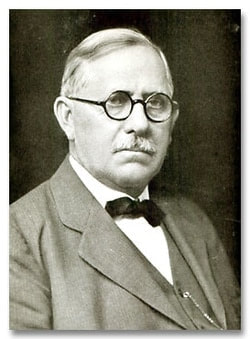
Charity was the rule and not the exception. Money was given for charity freely when the heart was given fully to the Lord. That early church had consecrated its purse and so we read that Barnabas, having land, sold it and brought the money and laid it at the apostle's feet. (See Acts 4th chapter 37th verse.) What a princely benefactor he was! Either the amount of his giving was very large or there was something in his manner of giving that caused Luke to single Barnabas out from all the others and only mention his name in connection with the general law of self-denying generosity.
The point is that a deep inward principle of love will always find some outward expression toward those who are in need. Selfishness will think only of our own comfort, but a heart warmed by the love of Christ will always think of the general good. Barnabas did not wait for others to act, neither did he wish to outdo some one else in the matter of giving, but he gave when the needs of the people demanded it. True liberality is both a cause and effect of every true revival.
"Is his purse consecrated?" was frequently a question of one of John Wesley's co-laborers, when he heard of a man who had become a Christian. A genuine revival of old-time, heart-felt religion in the church would cause the boards of foreign missions, of the different denominations to not be smothered to death with debt, and missionaries from having their salaries cut to the point where they have to eke out an existence while they do the work of the church in the foreign fields while the homeland has plenty and to spare. Such a revival would cause the local church to do away with all its entertainments and its festivities in order to meet the current expenses. Not only did Barnabas assist in improving the outward and material conditions of the early church, but we see what he did to preserve the internal peace and prosperity of the church.
Knowing how injurious to their peace and happiness and how destructive of the church would be any division that might spring up, we find that Barnabas became one of the peacemakers of the early church, for we read that when Paul returned to Jerusalem after his conversion on the way to Damascus many suspicioned him, for we are told in Acts 9th chapter 26th verse that "he assayed to join himself to the disciples," but they were all afraid of him, and believed not that he was a disciple. But no one could blame them, for he had been breathing out threatenings and slaughter against them, and they knew it. Here was this same man wanting to join them. Of course they thought that trouble was in the air and it was at this critical moment that Barnabas came in to calm the troubled waters.
Luke tells us in Acts 9th chapter 27th verse, "But Barnabas took him and brought him to the apostles, and declared unto them how he had seen the Lord in the way and that he had spoken to him, and how he had preached boldly of the Master in the name of the Lord." This settled the whole matter, and resulted in complete confidence among the brethren. The Church thus united went on to achieve further conquest for God and righteousness.
Robinson, Reuben A. (Bud). The Collected Works of 'Uncle Bud' Robinson
 RSS Feed
RSS Feed